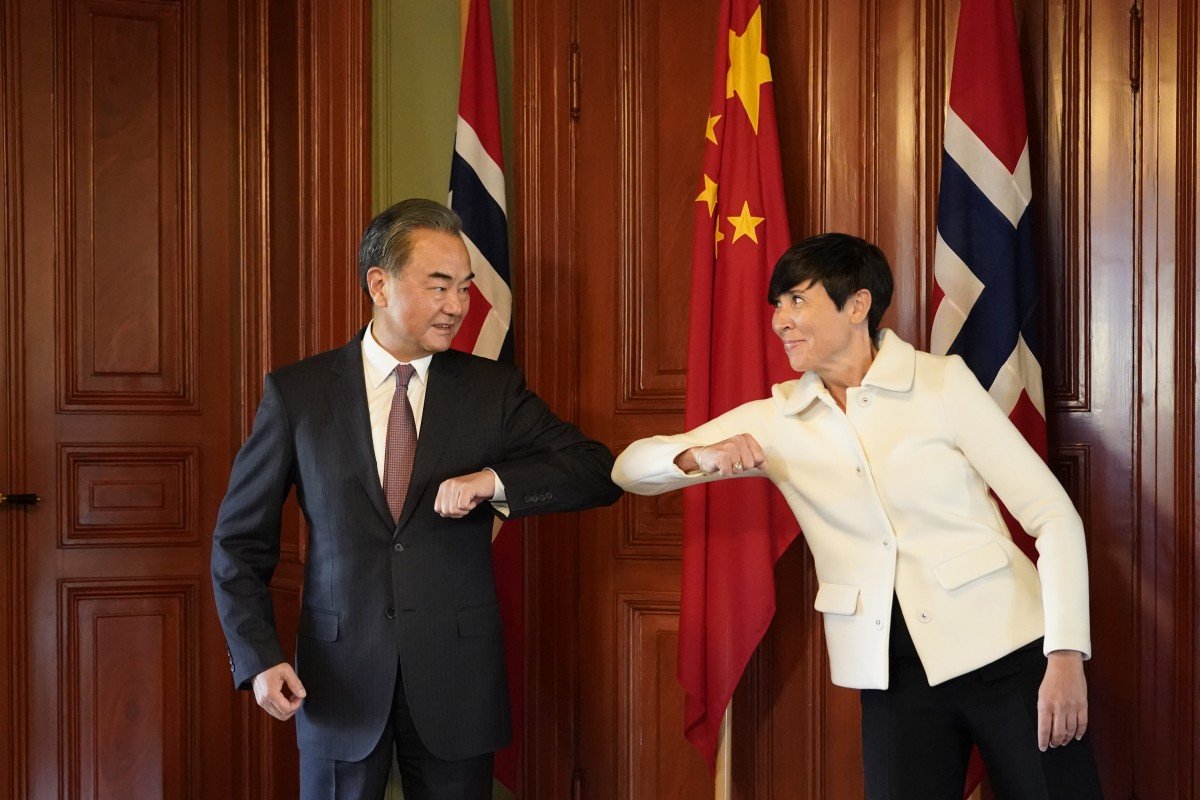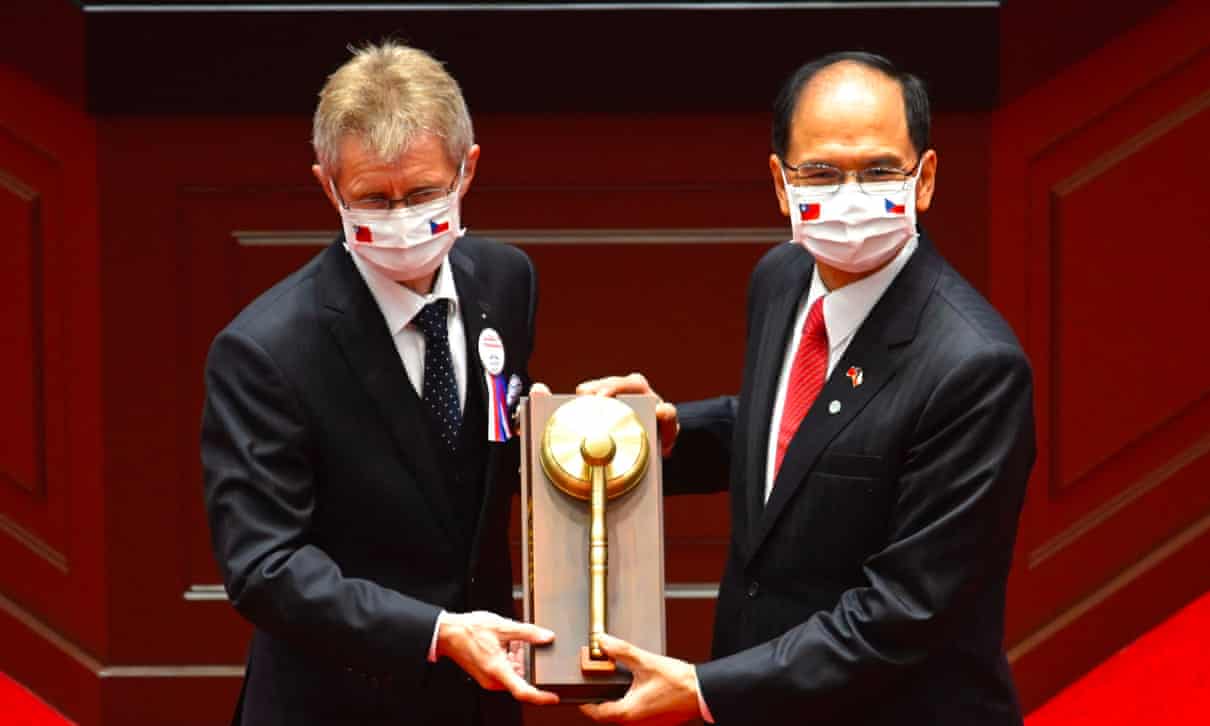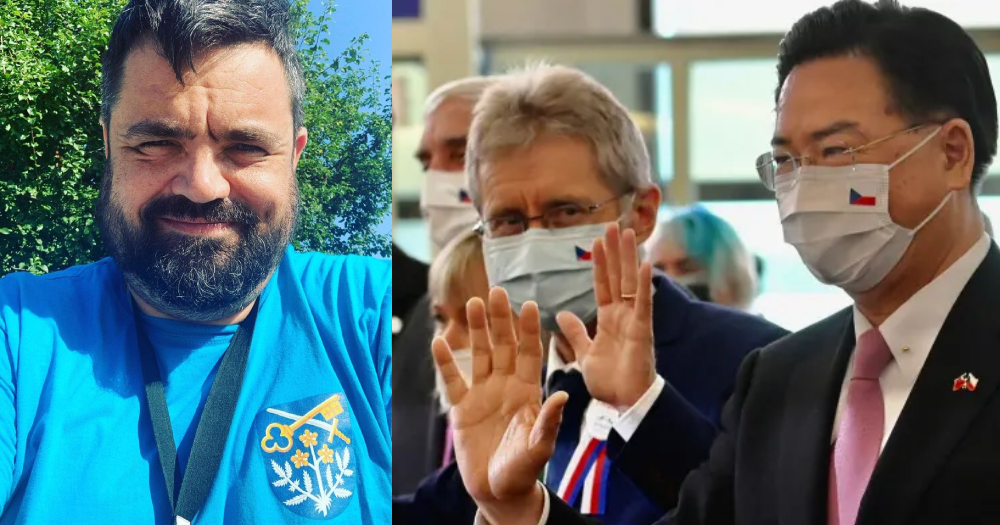A district mayor from the Czech capital of Prague has lashed out at Beijing, calling the Chinese government "ill-mannered, rude clowns".
Chinese Foreign Minister Wang Yi had criticised Czech Senate President Miloš Vystrčil’s visit to Taiwan, saying the Czech Republic and "anti-Chinese forces" will "pay a heavy price" as a result.
Demanded an apology from China
In a letter addressed to Wang Yi, Pavel Novotný, who is the Řeporyjed district mayor, launched a blistering tirade against China, demanding an apology from Wang, and claimed that Wang will "pay a heavy price for bullying".
Wang's behaviour has "crossed the line of what's diplomatically acceptable", he said, adding that he will not give in to China even if China invests more in the country than Taiwan does.
After demanding the apology to be sent via email, Novotný ended the letter with multiple vulgarities, and said "Don't f*** with me!!!"Beijing criticised Czech Republic for Taiwan trip
Besides Wang, Chinese Foreign Ministry spokesperson Zhao Lijian had also slammed the visit, saying it is “a despicable act” that undermines the “political foundation between China and the Czech Republic”.
Beijing views self-ruled Taiwan as a renegade province that needs to be reunified with the mainland, even if force is necessary.
Soon after China's Politburo member and top diplomat Yang Jiechi finished his trip to Singapore and South Korea, Wang went on a charm offensive in Europe amid rapidly dwindling relations with the United States.
 Wang exchanging an elbow bump with his Norwegian counterpart Ine Eriksen Soreide last Thursday, Aug. 27. (Image via Xinhua)
Wang exchanging an elbow bump with his Norwegian counterpart Ine Eriksen Soreide last Thursday, Aug. 27. (Image via Xinhua)
China is facing a number of growing criticisms from the U.S. on its Hong Kong policy, its treatment of its Uyghur population, and its behaviour in the South China Sea.
Taiwan scoring diplomatic victories as U.S.-China tensions escalate
The Czech Senate head's visit to Taiwan, along with the U.S. Secretary of Health and Human Services Alex Azar’s trip to Taiwan in early August, can be said to be diplomatic wins for Taiwan as tensions between the U.S. and China heat up.
 Czech Senate President Miloš Vystrčil declared "I am Taiwanese" in Taiwan's parliament. (Image via Sam Yeh/AFP/Getty Images)
Czech Senate President Miloš Vystrčil declared "I am Taiwanese" in Taiwan's parliament. (Image via Sam Yeh/AFP/Getty Images)
Taiwan has also established reciprocal representative offices with Somaliland, a self-declared state in East Africa.
Excluded from international organisations like the World Health Organisation due to Chinese pressure, only 15 states recognise Taiwan currently, though it has informal relations with countries such as the U.S., Australia, Canada and Japan.
U.S. playing the Taiwan card?
The U.S. State Department's top diplomat for East Asia, David Stilwell said at a forum on Monday, Aug. 31, that the U.S. "must act to restore balance" after Chinese "destabilising" actions had deepened Taiwan's diplomatic isolation and threatened the peace and stability of the Western Pacific.
He also said the U.S. would continue to help Taipei "resist the Chinese Communist Party's campaign to pressure, intimidate, and marginalise Taiwan", adding that the U.S. can no longer assume that Beijing will "peacefully resolve its differences with Taipei" as it had allegedly promised in the three joint communiques.
As tensions between the U.S. and China heat up, Taiwan is increasingly seen as a bargaining chip in the two major powers' relations.
Experts have acknowledged the growing risk of accidental conflict in the South China Sea and around Taiwan as China ramps up its presence in the area, and as the U.S. continues with its Freedom of Navigation operations.
Concerned about such a risk, Taiwanese President Tsai Ing-wen has recently stressed the importance for all parties to “maintain open lines and communication to prevent misinterpretations or miscalculations", Reuters reported.
Top image via Getty Images & Pavel Novotný's Facebook
Totally unrelated but follow and listen to our podcast here
If you like what you read, follow us on Facebook, Instagram, Twitter and Telegram to get the latest updates.
